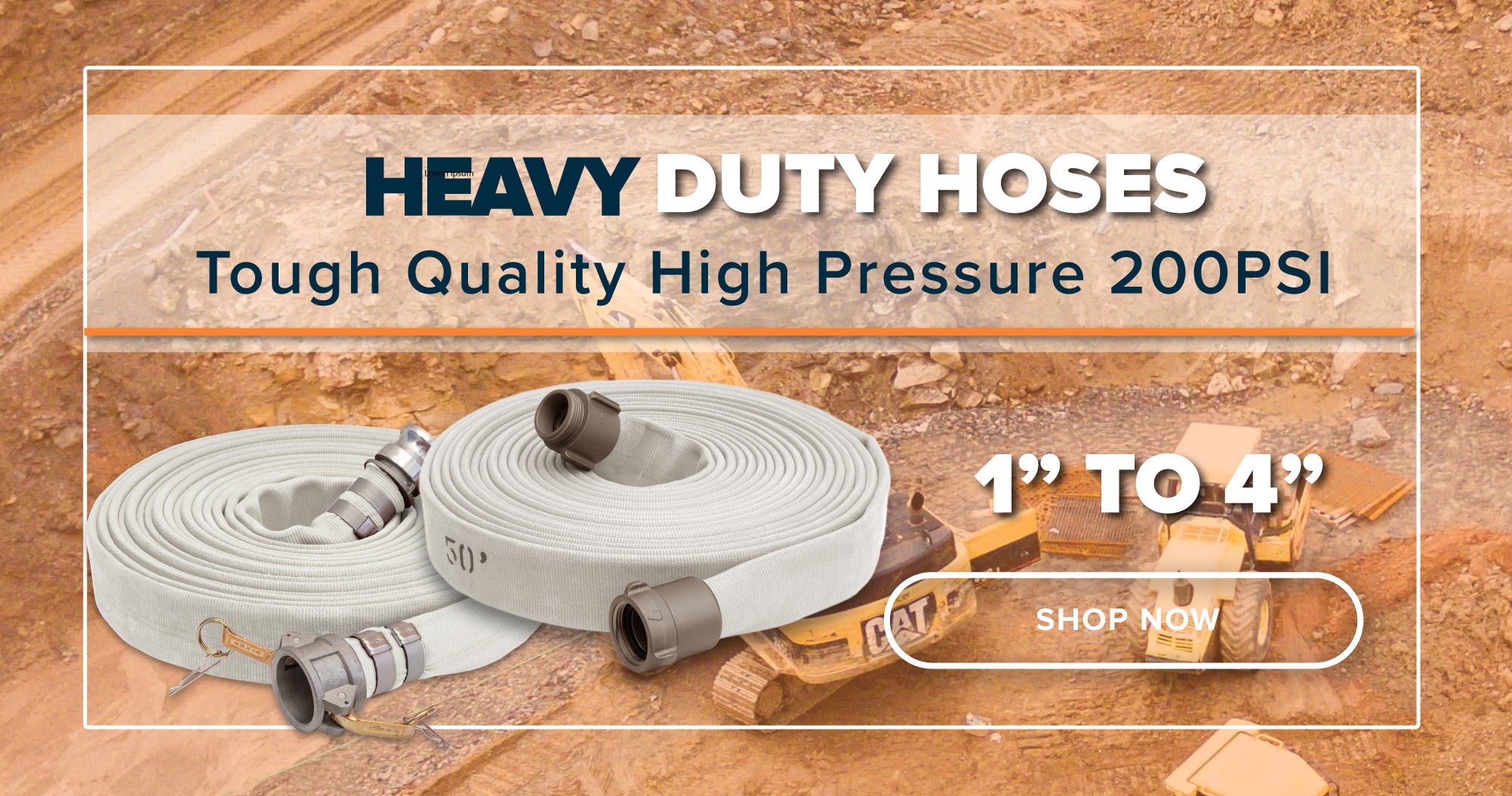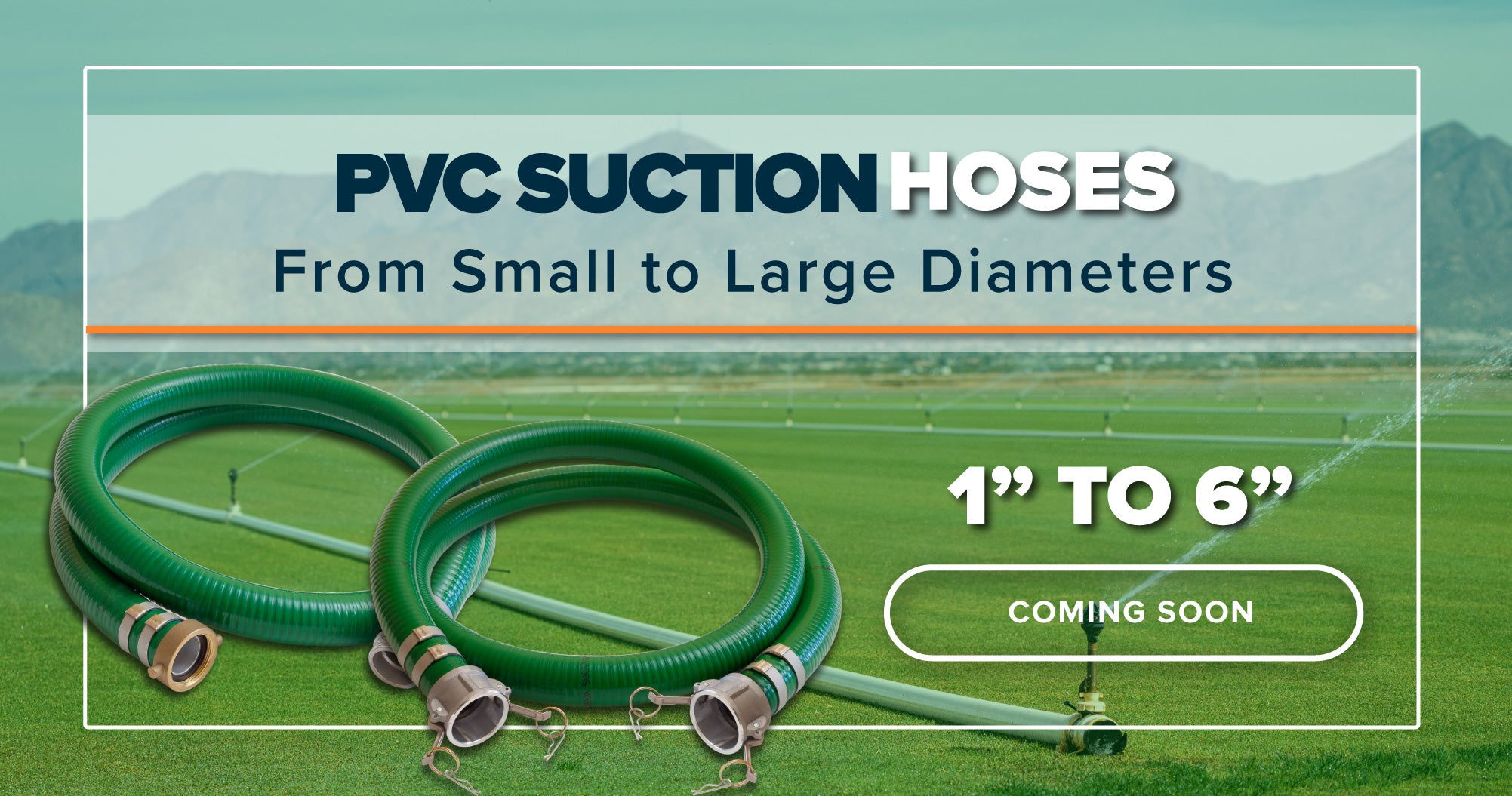If you're using a trash pump, you'll need a discharge hose to direct the water or other fluids you're pumping away from your site. Choosing the right discharge hose can be a critical part of ensuring that your pumping system is effective and efficient. In this article, we'll discuss the different types of discharge hoses available for trash pumps and the factors you should consider when choosing the best one for your needs.
Types of Discharge Hoses
When it comes to choosing a discharge hose for your trash pump, there are a few different materials and styles to consider. Here are some of the most common types of discharge hoses:
1. PVC Hoses
PVC hoses are made of a flexible, durable material that is resistant to kinking and twisting. These hoses are also lightweight and easy to maneuver, making them a popular choice for many pumping applications. PVC hoses are typically available in a variety of diameters, ranging from 1 inch to 6 inches, which can make it easier to find the right size for your pump.
2. Rubber Hoses
Rubber hoses are another option for trash pump discharge hoses. These hoses are typically thicker and more durable than PVC hoses, which can make them a better choice for more heavy-duty pumping applications. Rubber hoses are also resistant to weathering, which means they can be left outside for extended periods without degrading.
3. Polyurethane Hoses
Polyurethane hoses are another option for trash pump discharge hoses. These hoses are known for their toughness and abrasion resistance, which makes them ideal for pumping abrasive materials or working in rough terrain. Polyurethane hoses are typically more expensive than PVC or rubber hoses, but they can be a worthwhile investment if you need a hose that can stand up to challenging conditions.
Factors to Consider When Choosing a Discharge Hose
When choosing a discharge hose for your trash pump, there are several factors you should consider. Here are some of the most important things to keep in mind:
1. Hose Diameter
The diameter of your discharge hose can have a big impact on the efficiency of your pumping system. In general, a larger diameter hose will allow for faster flow rates and more efficient pumping. However, larger diameter hoses can also be more expensive and harder to maneuver, so you'll need to balance your needs with your budget and your available space.
2. Hose Length
The length of your discharge hose will also be an important consideration. A longer hose will allow you to pump fluids further away from your site, which can be useful if you're pumping into a nearby river or stream. However, longer hoses can also be more prone to kinking or tangling, which can reduce your pumping efficiency. Make sure you choose a hose that is long enough to meet your needs, but not so long that it becomes unwieldy.
3. Hose Material
The material of your discharge hose will be another important factor to consider. PVC hoses are typically the most affordable option, but they may not be as durable as rubber or polyurethane hoses. Rubber hoses are more durable and weather-resistant, but they can also be heavier and more expensive. Polyurethane hoses are the most durable and abrasion-resistant option, but they can also be the most expensive.
4. Hose Couplings
The couplings on your discharge hose are the connectors that allow you to attach the hose to your trash pump and to the discharge point. There are several different types of couplings available, including threaded, camlock, and quick-connect couplings. Threaded couplings are the most common, but they can also be the most difficult to attach and detach. Camlock and quick-connect couplings are easier to use, but they can also be more expensive.
Leave a Reply
Your email address will not be published. Required fields are marked *








0 comments